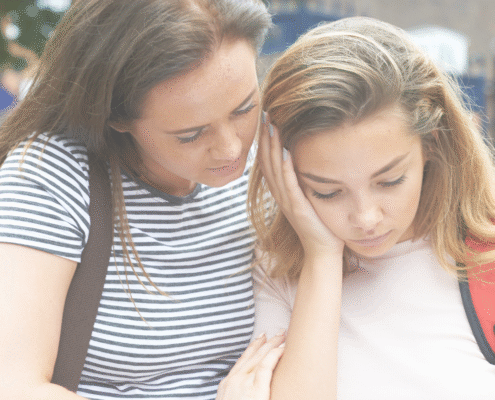 https://nelsonsjourney.org.uk/wp-content/uploads/2025/08/Square-resize-images-11-e1755686216437.png
817
1080
Megan Utting
http://nelsonsjourney.org.uk/wp-content/uploads/2016/05/1.png
Megan Utting2025-08-14 15:15:332025-09-01 09:15:32Results Day 2025 Top Tips
https://nelsonsjourney.org.uk/wp-content/uploads/2025/08/Square-resize-images-11-e1755686216437.png
817
1080
Megan Utting
http://nelsonsjourney.org.uk/wp-content/uploads/2016/05/1.png
Megan Utting2025-08-14 15:15:332025-09-01 09:15:32Results Day 2025 Top TipsRead about our services, resources, events and fundraising initiatives and find out how your support for Nelson’s Journey can help bereaved children and young people across Norfolk. For occasional updates direct to your inbox, please sign up for email news at the bottom of the page.
 https://nelsonsjourney.org.uk/wp-content/uploads/2025/08/Square-resize-images-11-e1755686216437.png
817
1080
Megan Utting
http://nelsonsjourney.org.uk/wp-content/uploads/2016/05/1.png
Megan Utting2025-08-14 15:15:332025-09-01 09:15:32Results Day 2025 Top Tips
https://nelsonsjourney.org.uk/wp-content/uploads/2025/08/Square-resize-images-11-e1755686216437.png
817
1080
Megan Utting
http://nelsonsjourney.org.uk/wp-content/uploads/2016/05/1.png
Megan Utting2025-08-14 15:15:332025-09-01 09:15:32Results Day 2025 Top Tips https://nelsonsjourney.org.uk/wp-content/uploads/2025/08/Low-Res-2-bears-e1755169833497.jpeg
898
1773
Maisie Close
http://nelsonsjourney.org.uk/wp-content/uploads/2016/05/1.png
Maisie Close2025-08-14 11:18:062025-08-14 11:19:04Thank you to Warburtons Community Grants!
https://nelsonsjourney.org.uk/wp-content/uploads/2025/08/Low-Res-2-bears-e1755169833497.jpeg
898
1773
Maisie Close
http://nelsonsjourney.org.uk/wp-content/uploads/2016/05/1.png
Maisie Close2025-08-14 11:18:062025-08-14 11:19:04Thank you to Warburtons Community Grants! https://nelsonsjourney.org.uk/wp-content/uploads/2025/08/Copy-of-Easter-Egg-Hunt-2025-Social-Posts-Sqaures-6.png
1080
1080
Nelson's Journey
http://nelsonsjourney.org.uk/wp-content/uploads/2016/05/1.png
Nelson's Journey2025-08-14 10:25:062025-10-02 09:14:58Chair of Trustees sought for Norfolk's leading child bereavement charity
https://nelsonsjourney.org.uk/wp-content/uploads/2025/08/Copy-of-Easter-Egg-Hunt-2025-Social-Posts-Sqaures-6.png
1080
1080
Nelson's Journey
http://nelsonsjourney.org.uk/wp-content/uploads/2016/05/1.png
Nelson's Journey2025-08-14 10:25:062025-10-02 09:14:58Chair of Trustees sought for Norfolk's leading child bereavement charity https://nelsonsjourney.org.uk/wp-content/uploads/2025/08/Group-Photo-scaled-e1755084222394.jpg
1664
2560
Megan Utting
http://nelsonsjourney.org.uk/wp-content/uploads/2016/05/1.png
Megan Utting2025-08-13 11:33:272025-08-14 10:47:59Norwich City Footballer, Emi Marcondes Visits Smiles House
https://nelsonsjourney.org.uk/wp-content/uploads/2025/08/Group-Photo-scaled-e1755084222394.jpg
1664
2560
Megan Utting
http://nelsonsjourney.org.uk/wp-content/uploads/2016/05/1.png
Megan Utting2025-08-13 11:33:272025-08-14 10:47:59Norwich City Footballer, Emi Marcondes Visits Smiles House https://nelsonsjourney.org.uk/wp-content/uploads/2022/07/IMG_4530-scaled.jpg
1704
2560
Simon
http://nelsonsjourney.org.uk/wp-content/uploads/2016/05/1.png
Simon2025-07-24 14:59:182025-08-14 14:47:13VACANCY: Can you raise funds to make a difference for Norfolk's bereaved children?
https://nelsonsjourney.org.uk/wp-content/uploads/2022/07/IMG_4530-scaled.jpg
1704
2560
Simon
http://nelsonsjourney.org.uk/wp-content/uploads/2016/05/1.png
Simon2025-07-24 14:59:182025-08-14 14:47:13VACANCY: Can you raise funds to make a difference for Norfolk's bereaved children? https://nelsonsjourney.org.uk/wp-content/uploads/2024/05/BD-BF-Cover.png
2500
2500
Nelson's Journey
http://nelsonsjourney.org.uk/wp-content/uploads/2016/05/1.png
Nelson's Journey2024-05-22 08:37:402025-08-14 10:49:19Local author creates children's book to raise funds for Nelson's Journey
https://nelsonsjourney.org.uk/wp-content/uploads/2024/05/BD-BF-Cover.png
2500
2500
Nelson's Journey
http://nelsonsjourney.org.uk/wp-content/uploads/2016/05/1.png
Nelson's Journey2024-05-22 08:37:402025-08-14 10:49:19Local author creates children's book to raise funds for Nelson's Journey https://nelsonsjourney.org.uk/wp-content/uploads/2024/05/multiracial-families-having-fun-together-with-kids-2023-11-27-05-28-53-utc-scaled.jpg
1650
2560
Kirsty Rose
http://nelsonsjourney.org.uk/wp-content/uploads/2016/05/1.png
Kirsty Rose2024-05-15 11:31:042024-05-15 11:35:07Embrace the Joy of Nature: The Benefits of Picnics with Friends and Family
https://nelsonsjourney.org.uk/wp-content/uploads/2024/05/multiracial-families-having-fun-together-with-kids-2023-11-27-05-28-53-utc-scaled.jpg
1650
2560
Kirsty Rose
http://nelsonsjourney.org.uk/wp-content/uploads/2016/05/1.png
Kirsty Rose2024-05-15 11:31:042024-05-15 11:35:07Embrace the Joy of Nature: The Benefits of Picnics with Friends and Family https://nelsonsjourney.org.uk/wp-content/uploads/2024/03/young-mother-and-her-cute-daughter-having-a-fun-in-2023-11-27-04-56-45-utc-scaled.jpg
1706
2560
Kirsty Rose
http://nelsonsjourney.org.uk/wp-content/uploads/2016/05/1.png
Kirsty Rose2024-03-19 01:00:452025-08-12 10:34:09Embracing the Arrival of Spring: A Boost for Mental Health and Wellbeing
https://nelsonsjourney.org.uk/wp-content/uploads/2024/03/young-mother-and-her-cute-daughter-having-a-fun-in-2023-11-27-04-56-45-utc-scaled.jpg
1706
2560
Kirsty Rose
http://nelsonsjourney.org.uk/wp-content/uploads/2016/05/1.png
Kirsty Rose2024-03-19 01:00:452025-08-12 10:34:09Embracing the Arrival of Spring: A Boost for Mental Health and Wellbeing https://nelsonsjourney.org.uk/wp-content/uploads/2024/01/duncan-talking-scaled.jpg
1707
2560
Kirsty Rose
http://nelsonsjourney.org.uk/wp-content/uploads/2016/05/1.png
Kirsty Rose2024-02-01 05:35:402024-01-30 15:57:15Time to Talk Day - Lets Talk!
https://nelsonsjourney.org.uk/wp-content/uploads/2024/01/duncan-talking-scaled.jpg
1707
2560
Kirsty Rose
http://nelsonsjourney.org.uk/wp-content/uploads/2016/05/1.png
Kirsty Rose2024-02-01 05:35:402024-01-30 15:57:15Time to Talk Day - Lets Talk!Keep up to date and subscribe to our email newsletter
Sign-up for our email newsletter to receive updates, and information about campaigns and events from Nelson’s Journey from time-to-time. We don’t send out too many emails, and you can unsubscribe at any time. For more frequent updates, please follow our social media channels.
About Us
Nelson’s Journey is a Charitable Incorporated Organisation
Registered Charity 1170605
Registered Charity 1170605
HOW TO FIND US
This website is proudly hosted and managed by PureContent.
Contact Us
Nelson’s Journey, Bradbury Building - Smiles House, Octagon Business Park, Hospital Road, Little Plumstead, Norwich, NR13 5FH
